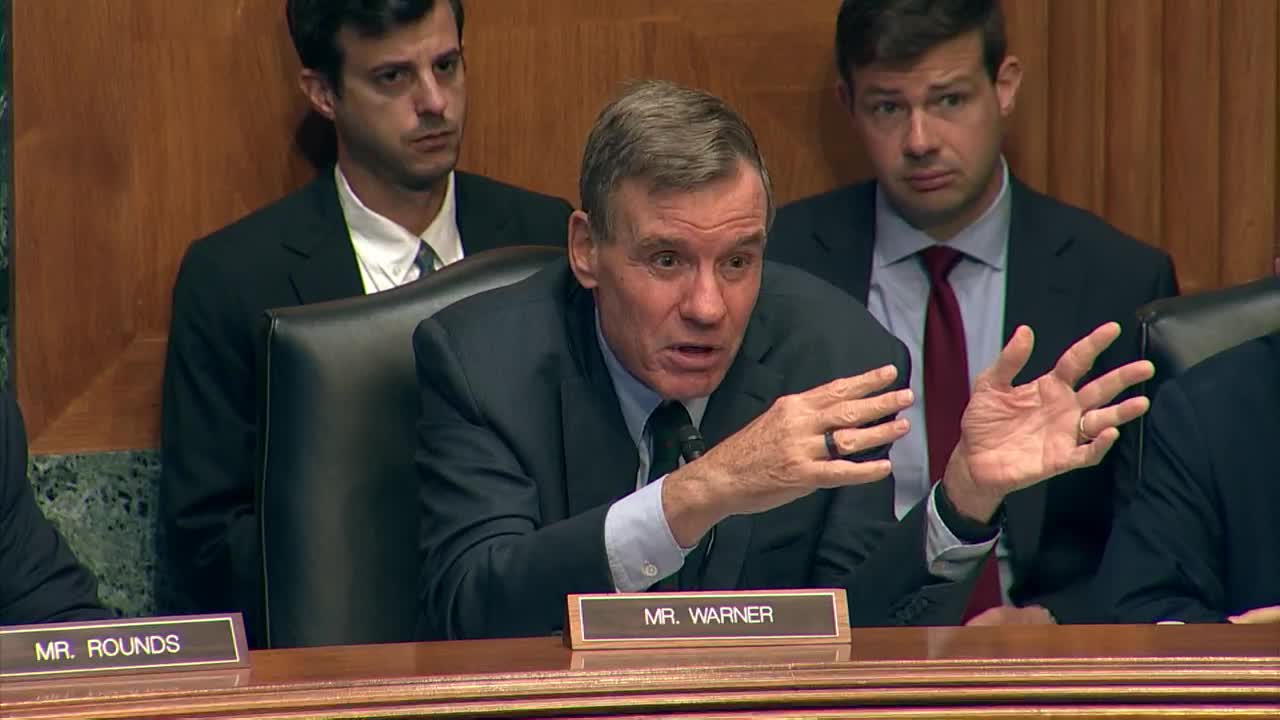Senator Reid discusses AI's role in insurance and climate change predictions
July 30, 2025 | Banking, Housing, and Urban Affairs: Senate Committee, Standing Committees - House & Senate, Congressional Hearings Compilation
This article was created by AI summarizing key points discussed. AI makes mistakes, so for full details and context, please refer to the video of the full meeting. Please report any errors so we can fix them. Report an error »

In a recent meeting of the U.S. Senate Committee on Banking, Housing, and Urban Affairs, the role of artificial intelligence (AI) in the insurance industry took center stage, highlighting its growing importance in addressing climate change. As the discussion unfolded, Senator Reid expressed gratitude for the insights shared by industry experts, particularly focusing on how insurance companies are increasingly integrating AI into their operations.
Mister Kalanich, a key witness, detailed the transformative impact of AI on underwriting policies and processing claims. He emphasized that insurance companies are not merely reacting to climate-related disasters but are proactively using AI to predict and mitigate risks. This forward-thinking approach includes monitoring climate patterns to foresee events like wildfires, hurricanes, and flooding. By leveraging advanced climate science, insurers aim to enhance their predictive models, allowing them to respond more effectively to potential disasters.
A striking example shared during the meeting was the deployment of drones by insurance companies in the Southeast during recent hurricanes. These drones were utilized to gather real-time data for claims adjusting, enabling insurers to provide quicker and more accurate payouts to policyholders. This innovative use of technology not only streamlines the claims process but also reflects a significant shift in how the insurance industry is adapting to the challenges posed by climate change.
As the conversation progressed, it became clear that the need for more comprehensive climate data is essential for improving AI models. The integration of such data will further empower insurers to anticipate risks and respond with greater precision. The implications of these advancements are profound, suggesting a future where AI not only enhances operational efficiency but also plays a crucial role in safeguarding communities against the increasing threats of climate-related disasters.
The meeting underscored the necessity for ongoing dialogue and collaboration between the insurance sector and policymakers to ensure that AI continues to evolve in a way that benefits both the industry and the public. As the landscape of risk management transforms, the intersection of AI and climate science will undoubtedly shape the future of insurance in America.
Mister Kalanich, a key witness, detailed the transformative impact of AI on underwriting policies and processing claims. He emphasized that insurance companies are not merely reacting to climate-related disasters but are proactively using AI to predict and mitigate risks. This forward-thinking approach includes monitoring climate patterns to foresee events like wildfires, hurricanes, and flooding. By leveraging advanced climate science, insurers aim to enhance their predictive models, allowing them to respond more effectively to potential disasters.
A striking example shared during the meeting was the deployment of drones by insurance companies in the Southeast during recent hurricanes. These drones were utilized to gather real-time data for claims adjusting, enabling insurers to provide quicker and more accurate payouts to policyholders. This innovative use of technology not only streamlines the claims process but also reflects a significant shift in how the insurance industry is adapting to the challenges posed by climate change.
As the conversation progressed, it became clear that the need for more comprehensive climate data is essential for improving AI models. The integration of such data will further empower insurers to anticipate risks and respond with greater precision. The implications of these advancements are profound, suggesting a future where AI not only enhances operational efficiency but also plays a crucial role in safeguarding communities against the increasing threats of climate-related disasters.
The meeting underscored the necessity for ongoing dialogue and collaboration between the insurance sector and policymakers to ensure that AI continues to evolve in a way that benefits both the industry and the public. As the landscape of risk management transforms, the intersection of AI and climate science will undoubtedly shape the future of insurance in America.
View full meeting
This article is based on a recent meeting—watch the full video and explore the complete transcript for deeper insights into the discussion.
View full meeting